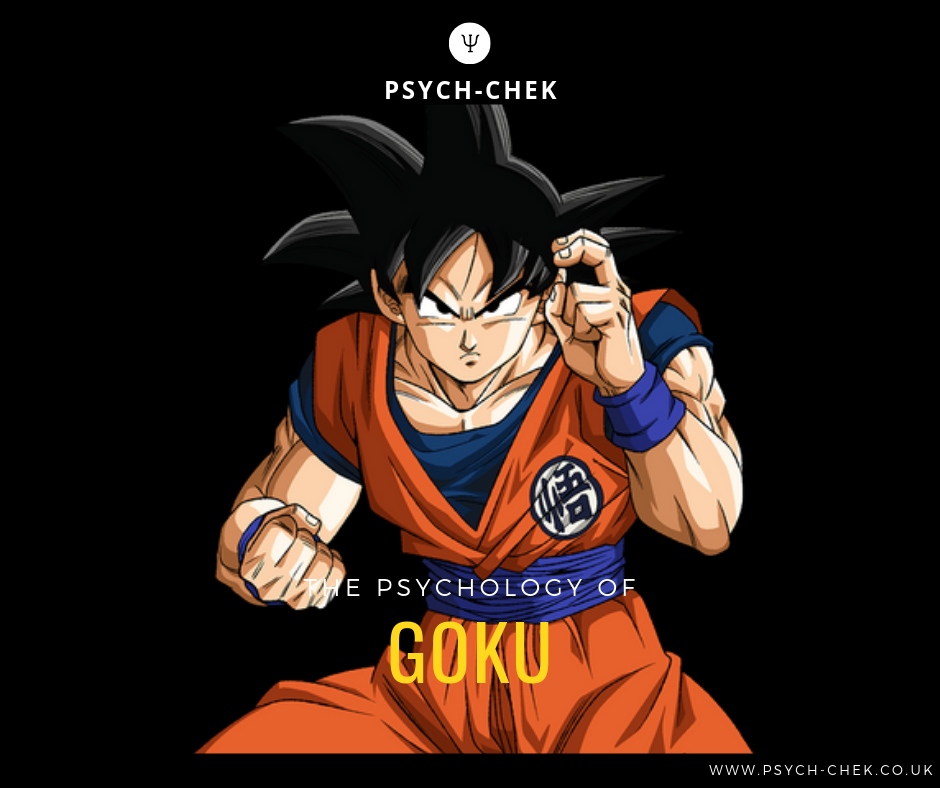The Psychology of Goku
In the DragonBall series the protagonist, Goku (Kakarot), has spent his life learning and challenging himself to become the strongest fighter. This short article addresses the psychology behind him and relates it to psychology literature and concepts to explain why he is the character he has developed to be.
Mindset
Goku is highly recognised for his approach towards challenges, positive response to obstacles, and constantly training in order to develop himself, which characterises Carol Dweck's GROWTH MINDSET. This is apparent through him always stating he's looking for someone to fight that is stronger than him, consistently taking on challenging training regimes, and always wanting to learn more on how to develop himself in every way possible. One reason to why he developed this growth mindset is through being challenged at an early age by his first master Gohan, and potentially not being praised for his natural ability, but for his hard work in training and the benefits received from it. This is different to another character like Vegeta, who arguably has a more FIXED MINDSET, which can be developed from being of royalty and constantly being praised for his natural ability. The difference in progression between Goku and Vegeta does show the influence of having a Growth or Fixed mindset in the development of a person.
Motivation/goals
Through the DragonBall series, Goku seems to be motivated towards something, rather than avoiding something. This suggests his goals are oriented to approach rather than avoidance, which has benefits for psychological well-being and performance measures, shown by McGregor & Elliot (2002). Specifically, he sometimes alternates between being motivated to be better than/defeat someone and to be better than himself. However, he is more concerned with being better than he has been before, than being better than other people; shown by his consistent training despite not having any opposition to train for. It's also seen from an early age as he consistently looked for masters to learn from and not comparing his performance to his training partners (e.g. Krillin). The benefit of this is, when the opponent is not there his motivation to train and fight remains even when he defeats someone. However, if he was only motivated to beat his opposition and not better himself, when there is no opposition he wouldn't be motivated to train (shown by Vegeta no longer training intensely after Goku died after the cell games).
Stress
Interestingly, Goku's approach motivation/goal orientation has an influence on how he views stressful situations. Meijen et al. (2013) found those with this motivation are more likely to positively interpret a stressful situation and view their anxiety as helpful for performance, than those with avoidance motivated/goal orientation (e.g., don't perform worse than him) who would view the situation as a threat and their anxiety as negative, which would lead to decreased performance.
Summary
Growth mindset
Approach motivation
Positively interpret stress
Article by Edgar Chekera

